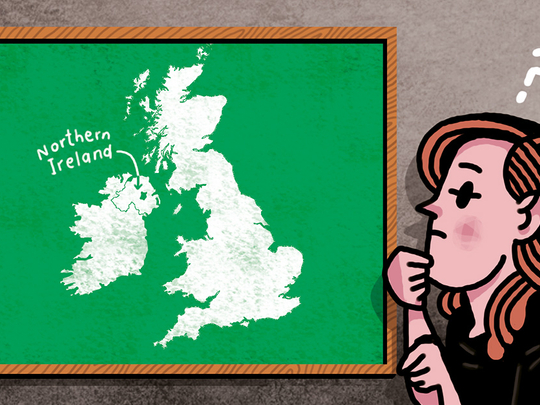
There was an interesting exchange recently on one of the few, yet still too many, social media platforms I subscribe to, which raised the issue of identity in Northern Ireland. Some were insisting that there were only two identities in the region — Irish or British, but with the growing migrant community and the increasing open-mindedness of the population living there, this doesn’t seem to hold water as it has done in previous years.
As someone who was raised in Northern Ireland, through the tail end of the troubles and before the onset of relative peace in the region, identity defined how I thought and felt for a long time. Only when I left the country and worked outside the region for years, meeting a wide variety of people and having many discussions and experiences relating to others’ identities that I became more aware of my own.
Thinking of myself as Irish or British is a tough proposition. As someone raised in the nationalist/Catholic community I’ve always leaned towards the Irishness part of Northern Ireland, but as I’ve travelled and lived outside the country, I’ve come to think of myself as neither Irish, nor British. I’m just from Northern Ireland, a place that has existed since 1922, when Ireland was split in two with the British retaining control of six counties in the north.
Identity is like a comfort blanket, a default setting for wherever you find yourself in the world. It’s the foundation of who we are, or think we are, to the outside world, and affects our behaviours and views. Some people see identity as part of our cultural experience and we can have many different identities at different times in our lives. I am a sister, an aunt, a friend, a journalist, a student, a feminist, and many more identities beyond that.
We are all linked to identity through the community groups that we are a part of. And in Northern Ireland, this can mean identifying with Britain and identifying with Ireland. It just depends how you were raised. I know that if I had been raised in a Protestant household I would most likely hold to similar beliefs as most other Protestants, so it’s not for some mystical, romantic reason that I feel Irish, it’s because my mum did, my community did, my school friends did, and these views were passed onto me subconsciously; a silent trickle of ideas and views infiltrating my young mind.
It is only when applying for a passport in Northern Ireland that one is forced to acknowledge the limitations of identity. But we are lucky in that we can choose to have an Irish and/or a British passport, thanks to the Good Friday Agreement that set up the system of government that we currently enjoy today. Since Brexit, there has been a huge rise in the number of people applying for Irish passports in the region.
Brexit has driven a fear through the heart of every person in Northern Ireland over the past few months since the referendum results were announced last June. If signals a fear that we could be losing part of this identity and the freedom to be Irish. The fear of losing a part of your identity, whatever that may entail, is perhaps a terrifying prospect, especially if it has been a part of your entire life. Taking away a part of one’s identity means taking away a part of themselves. And while the politicians talk of hard and soft Brexit and all the great ‘deals’ they will secure for the British people, there is a fear among people living in Northern Ireland that they are not being fully represented and that with Brexit they will lose something of their identity when it rips Northern Ireland from Europe.
Europe was a major factor in the peace negotiations in the 1990s when nationalists and unionists came together with help from the Americans (I sincerely cannot see Donald Trump taking such an interest in the affairs of our small section of the world, although he has played golf with the one and only Rory McElroy) and the European Union. The agreement and the rights afforded to people in Northern Ireland through it are enshrined in the European Court on Human Rights, so there is uncertainty as to what form any new arrangements will take.
Following the elections in Northern Ireland earlier this month, which saw Sinn Fein make gains in their supporter base and the largest party in the Assembly, the Democratic Unionist Party, take a significant hit, there is now talk from Sinn Fein leader Gerry Adams that the possibility of Irish unity is stronger than ever.
For all those who have wished for their Irish identities to be given such strong confirmation there would be joy and relief. But we must remember those who identify with being British and how they will be affected by such a transition. But these are questions to be raised if and when the time comes. In the meantime, Brexit has cast a shadow in the shape of fear for the thousands of people living in the region and how their identities will change over the coming months will have an effect on the actions taken.
Christina Curran is a journalist currently studying a Masters in International Relations at Queen’s University, Belfast.







